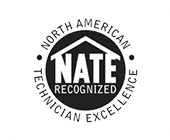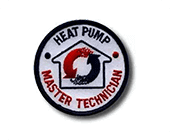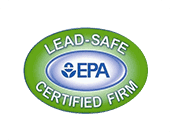According to the US Department of Energy, heating costs account for roughly 30% of the average home electricity bills than any other “system”.
While there are multiple ways to reduce these expenses (such as using a programmable thermostat or simply wearing a sweater instead of revving up the heat), one very pragmatic step you can take is to equip your home with an efficient heating system. Even if it necessitates a higher upfront investment, you will save money in the long run on heating or air conditioning repair in Phoenix, AZ, because a more effective system requires less energy translating into lower heating bills.
What Factors Influence Heating System Efficiency?
Of course, knowing what constitutes “efficient” will help you understand what to look for when looking for one or determining whether your current system is efficient. Climatic patterns have a direct effect on the effectiveness of a heating appliance. Heat pumps are far more productive than furnaces in temperate climates. The furnace is more efficient in extremely cold climates.
The system’s yearly fuel utilization efficiency rating, or AFUE, is the most vital part of the story. This percentage rate informs you how much energy (typically in the shape of electricity or natural gas) that the system consumes is used to heat your home versus how much is wasted. In other words, it indicates how much energy the system converts into usable heat.
An AFUE rating of 90% represents a greater rate of efficiency—a system with such a rating uses 10% of its energy. Presently, the DOE (Department of Energy) requires a minimum AFUE of 80 percent, but many modern heating systems exceed the minimum (some even exceed the maximum).
How to Select an Energy-efficient Heating System?
In practice, however, discovering a heating system with a high AFUE score is only one aspect of determining the most efficient heating system for your home. You must also find one that is consistent with the energy source in your home. Some homes are only wired for electric heating, while others are- wired for natural gas.
Natural gas is, by description, more effective than electricity, so if that’s what you want—and your home isn’t already natural-gas compatible—check with your local gas company to see if the transformation to natural gas is possible.
Furnaces are the most efficient energy systems in a broad sense, especially if you have natural gas. They operate by heating air with a component known as a heat exchanger and directing it into the home via a duct system and a fan (often referred to as a blower). Along with their high-efficiency ratings, one of the most significant advantages of furnaces is their low cost. A new furnace will typically cost between $2,000 and $7,500. The disadvantage of this option is that? Furnaces are frequently noisy due to the fan.
At Autumn Heating and Cooling LLC, we have a reputable name in the HVAC industry, and our technicians are renowned for offering the best repairs, upkeep, and AC replacement in Phoenix, AZ. To book an appointment, call us at 602-266-5247 or email us at joshua@autumnair.net.













